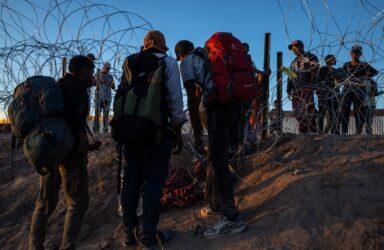How Useful are ‘national’ and/or ‘nationalist’ Frames when Analysing the ‘Movement for the Survival of the Ogoni People’ in the Niger Delta?
The epic struggle between the Ogoni, an African tribe with deep roots in the environment of the Niger Delta, and Royal Dutch/Shell, one of the world’s most powerful multinational oil companies, is a story which has caught the imagination of ‘Western’ publics. However, whilst there is little doubt over Shell’s devastating role in the Delta, the understanding of the Ogoni ‘nation’ as natural guardians of the Delta’s Eden-like environment deserves our critical analysis. Is this anything more than simply a story?
A Greater Role for International Institutions?
The world is heading in a direction of increasing complexity, mutual reliance, co-operation, and diversity. Institutions provide the forums for the co-ordination of efforts that are needed if we are to continue on this path to prosperity.
Terrorism Outlook for 2012
The global terrorist threat is diversifying. After embracing al Qaeda tactics and ideology, more local groups seek to emulate al Qaeda. Groups are planning domestic and international operations to cause mass casualties.
An assessment of Gaddis’ suggestion that MAD secured a ‘long peace’
This essay argues that whilst the destructive power of the atom bomb is significant, its contribution to stability in the latter half of the twentieth century is not. Indeed, it seems more likely that the contribution of nuclear weapons was to make a “long peace” seem less inevitable than it in fact was.
EU counter-terrorism: security, justice, democracy and opportunity for all?
The European Union (EU) has been engaged in the fight against terrorism as far back as the 1970s, triggered by attacks at the 1972 Munich Olympic Games. The EU’s counter-terrorism plans call for the vigorous promotion of security, justice, democracy and opportunity for all. But to what extent have such aims proved compatible and consistently pursued?
Victims and Perpetrators: the Implications of the Dual Status of Child Soldiers
This paper will seek to investigate the ambiguous status of child soldiers looking at their victimhood, their level of agency and the resulting post-conflict implications. It will argue that although local communities and child soldiers themselves understand their inherent duality, the international discourse has yet to incorporate it, which leads to an inadequate response.
How has globalisation changed the international system?
Globalisation has become a major topic in the study of International Relations. Almost all aspects of the modern day society have been influenced by it in some way. Problems do not arise isolated any more and thus the solutions for these now have to be found in collective action rather than individual responses.
Woman at War: Female Combatant Participation in the PYD and ISIS
Strategic and organizational considerations play a more decisive role in shaping women’s combat participation in violent political groups.
Borders as Violence: From Territorial Lines to Distributed Practices
Recognizing borders as distributed violence allows scholars to reimagine sovereignty, governance, and order in ways that move beyond the Westphalian template.
Wargaming in the US Military: Ludic Militarism and the Production of Warfighters
By means of a deconstructive play mode we can perhaps glimpse some of the ways our games produce our realities and ourselves.






